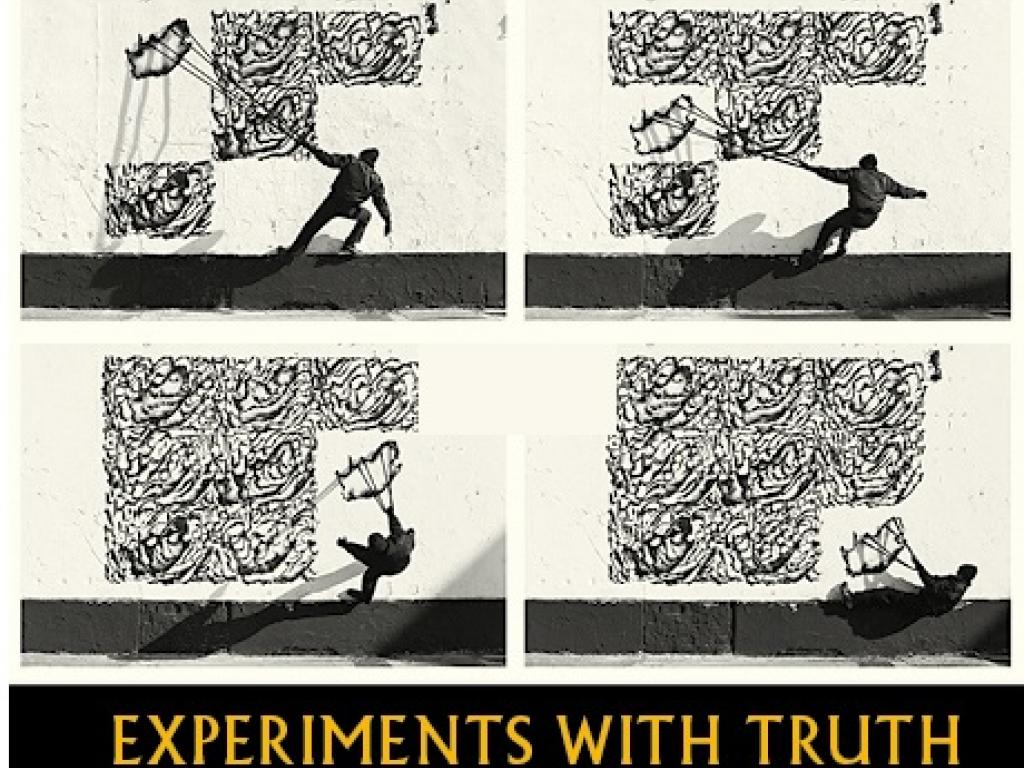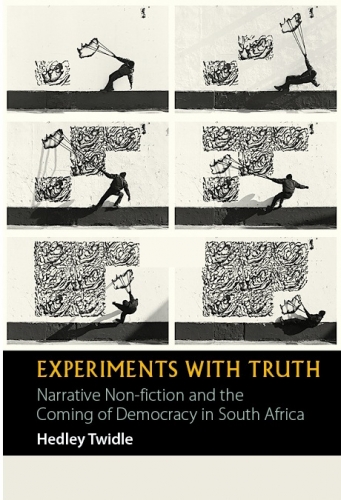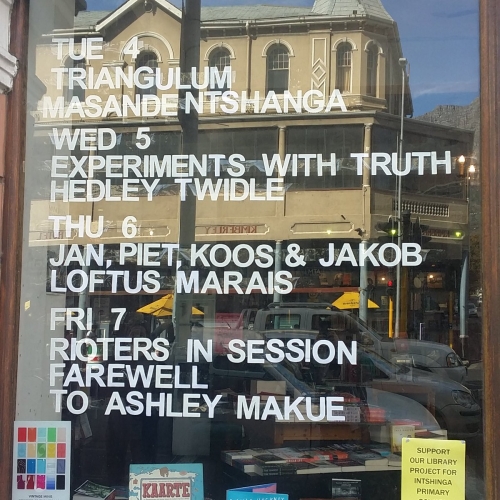New book that challenges thinking about the relationship between literature and democracy


Over the last decades, South Africa has seen an outpouring of life-writing and narrative non-fiction. Authors like Panashe Chigumadzi, Jacob Dlamini, Mark Gevisser, Pumla Gobodo-Madikizela, Antjie Krog, Sisonke Msimang, Njabulo Ndebele, Jonny Steinberg and Ivan VladislaviÄ have produced a compelling and often controversial body of work, exploring the country’s ongoing transition with great ambition, texture and risk.
Experiments with Truth by Dr Hedley Twidle, Department of English at UCT, is the first book-length account of the new non-fiction in South Africa. It reads the transition as refracted through an array of documentary modes that are simultaneously refashioned and blurred into each other: long-form analytic journalism and reportage; experiments in oral history, microhistory and archival reconstruction; life-writing, memoir and the personal essay. The case studies here trace the strange and ethically complex process by which actual people, places and events are shuffled, patterned and plotted in long-form prose narrative.
While holding in mind the imperatives of testimony and witness so important to the struggle for liberation and the Truth and Reconciliation Commission, the book is increasingly drawn to a post-TRC aesthetic: to works that engage with difficult, inappropriate or unusable elements of the past, and with the unfinished project of social reconstruction in South Africa. The case studies place southern African materials in a global context, and in dialogue with other important non-fictional traditions that have emerged at moments of social rupture and transition.
“The whole literary enterprise was a compromise between several desperate drives and urges, something even more profound than what is often referred to as ‘writing your way out of a situation’.” — Es’kia Mphahlele

Window display at the Book Lounge, Cape Town
Reading non-fiction across South Africa’s unfinished transition.
Published in the African Articulations series from James Currey / Boydell & Brewer, 2019.
Launch 17:30 Wednesday 5 June, Book Lounge, Cape Town.
I began working on this project in 2007, a time I remember very clearly since I was starting my PhD and living in Johannesburg during the first great era of ‘load shedding’. I would pilot a tiny, bright green Isuzu buggy with a hole in the exhaust and no second gear up Constitution Hill and over the brow of Hillbrow, round the taxi rank and across the tracks to the Johannesburg Central Library.
After I had parked underground at GAME, found a desk and ordered up some books via a laborious card index system, the power in the whole CBD would invariably go down: all the traffic lights out, the city suddenly plunged into a mood of civic disorder but also a strange euphoria. I would then have to thread the Isuzu back through the chaos. Sometimes traffic police would roll down their window and say: ‘Your car…’ and I expected the worst because it was unroadworthy in so many ways. But the follow up would normally be: ‘I like your car. Is it for sale?’
Load shedding, then Polokwane and the downfall of Thabo Mbeki, then outbreaks of xenophobic violence against African nationals in 2008: it was a moment when the story of post-apartheid South Africa modulated into a more dissonant, diminished key. For some it was the onset of a more fractious and difficult ‘second transition’, as it became clear that the truths and reconciliations of the Mandela years were in some ways illusory, and that the 1990s project of social reckoning and reconstruction had not been nearly deep, honest or durable enough. As an over-stressed national grid struggled to cope and the rolling blackouts continued, it seemed like the whole national project was teetering on the edge of massive system failure. But there were also lots of nice candlelit dinners.
At the time, I was reading across a wide range of non-fiction from or about South Africa: dense and passionately researched biographies, memoirs, essays, narrative journalism, social history and more. I was overwhelmed by the ambition and richness of non-fictional forms across 20th century and contemporary South Africa, particularly since this is a place where the most important intellectual work has often taken place outside of formal institutions: in marginalised, covert, non-academic or exile spaces.
This book is an attempt to give more critical attention to all those kinds of writing that get classed under the dull and inadequate term ‘non-fiction’. It is drawn to those works which are not carriers of pre-existing information but creative treatments of actuality: restless, unstable and even experimental mixtures of the found and the imagined, the received and the wrought.
My alternate title for the book was ‘Unusable Pasts’, which is meant to signal all those stories that don’t fit easy templates of nationalist or public history-making. I am intrigued by those works that can in some way honour the strangeness and resistance that past lives and events should offer to our current desires and projections; that resist the crushingly predictable narrative shapes, orthodox vocabularies and punctual timescales of much public discussion; that seek to reveal human lives as complexly symptomatic of the past, not as simply emblematic of it.
At the heart of the project is Njabulo Ndebele’s insight that the death of apartheid (and the coming of democracy) should be imagined not as an event but a social process: on-going and uneven, happening in different ways and at different tempos, split across institutions and individuals, ranging from the most public languages to the finest tissues of subjectivity, and one that will reach across generations.